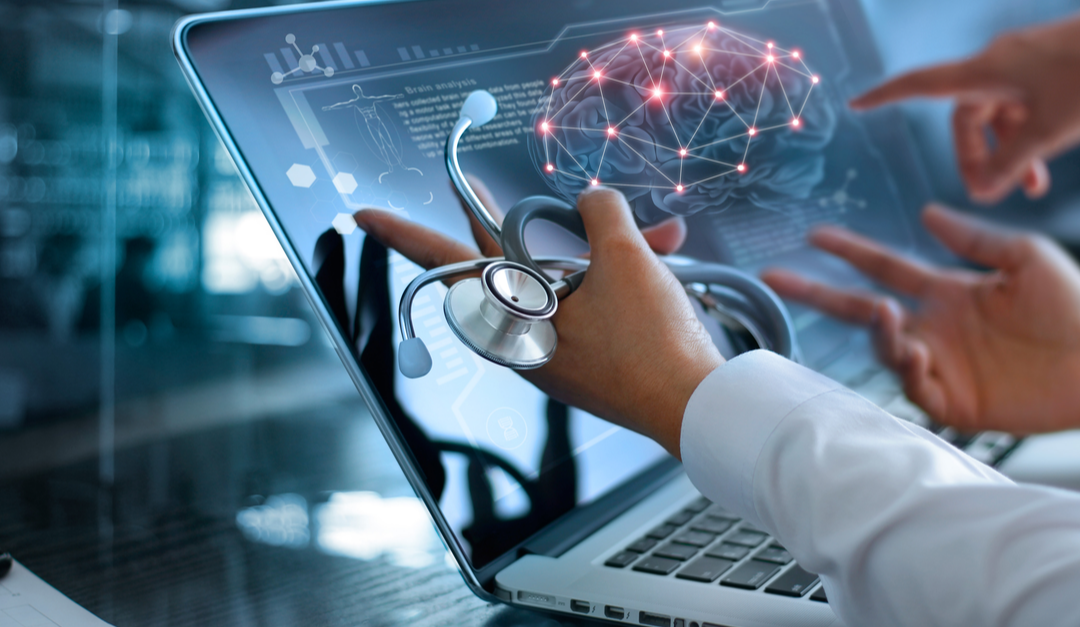European Union Nations agree to accelerate their digital transformation as an ‘essential component of the EU’s response to the economic crisis generated by the COVID-19 pandemic.’
The impact of Covid on the European Union’s diverse healthcare systems has led EU Legislators to call for an acceleration of health care digitalization. €9.4 billion has been set aside in the 2021-2027 EU budget for a new health program called EU4Health which aims to strengthen health security and prepare for future health crises. In 2021, €1.34 billion has been allocated for the Digital Europe Programme, which will support digitalization, including for the healthcare industry.
There are increasing, rapid, and incumbent opportunities for companies working on such digitalization, such as in the German healthcare app market, and for global Electronic Health Record (EHR) industry players such as Epic Systems, AdvancedMD, Allscripts Healthcare Solutions, Cerner, eClinicalWorks, and NextGen Healthcare. The acceleration of the EHR industry falls seamlessly in line with what an EU official, Oleg Butković, Croatian Minister for the Sea, Transport and Infrastructure, remarked, that, “A major share of the economy and society has shifted to digital during the pandemic.”
The European Union has 24 official working languages from its diverse and culturally unique member states. However, there are 3 ‘procedural’ languages, which are French, German and English. Among EU citizens, a majority of approximately 44% understand English, while 18% speak German as their native language. The European Union is in favor of linguistic diversity: in its 2003 Promoting Language and Linguistic Diversity Action Plan for 2004-2006, it encouraged citizens to be able to speak two languages in addition to their native language. With communication as a fundamental foundation to the EU’s smooth function, the report, “Communication on Digital Transformation of Health and Care in the Digital Single Market” outlines three pillars to guide the European Union’s multilingual transition to a digitalized platform. They are:
- Secure data access and sharing
- Connecting and sharing health data for research, faster diagnosis, and improved health
- Strengthening citizen empowerment and individual care through digital services
In transitioning to a digitalized platform, Electronic Healthcare Records (EHR) are a tangible and crucial goal that will bring direct and lasting benefits system-wide. Where EHRs have been sparsely available in EU member states during the current global pandemic, if available, could allow for more personalized, better care. EHR’s also enable remote patient work, which can be safer and provide more efficient working conditions for health workers. Future implications of a grand assembling of patient EHRs across borders to a centralized data platform can potentially allow invaluable insights for policymakers working from the EU’s three headquarters in Strasbourg, Luxembourg, and Brussels.
It is inspiring to see that the EU is making long term plans in its learning from recent coronavirus challenges. New budgetary allocations and the new opportunities that lie within will drive the digitalization of the EU’s healthcare system; with that, EHRs will become widely available, across borders. The multilingual nature of the EU, with its 24 working languages, present complex objectives for its mature translation departments, while also allowing citizens to engage in the process regardless of whether they speak any of the three EU procedural languages.
The purpose of translating medical communications is ultimately to improve health across languages and cultures. With open, cross-border communication solutions a core part of CSOFT Health Sciences, for every life science translation we provide, we facilitate the advancement of patient engagement, improving patient access, and ultimately improving global health.
- Dr. Hope
About CSOFT Health Sciences
CSOFT Health Sciences provides end-to-end medical translations for all phases of the product lifecycle, from pre-clinical to post-launch. We also specialize in market access consulting, medical writing, and CTD/eCTD submissions with the FDA, EMA, and NMPA. Our operations are compliant with ISO 17100 and certified in ISO 9001:2015 and ISO 13485:2016, ensuring our customized solutions meet the rigorous regulatory requirements of global submissions.
About CSOFT
CSOFT International is a leading provider of cross-border communications for enterprises seeking growth in global markets. Our expertise in localization, documentation, and branding encompasses a full range of end-to-end content and consulting services that we deliver in over 250 languages. With a focus in health sciences and smart technology, we work closely with our clients to deliver precision solutions to the challenges of engaging markets, consumers, and regulatory environments worldwide.
Dr. Hope is not a doctor but a creative voice at CSOFT Health Sciences, who seeks to provide insightful, factual, and relevant explanations of phenomena in the medical industry. Sometimes historical, other times philosophical, and generally related to the scientific interest and well-being of society, Dr. Hope provides commentary, inspiration and hope to readers thinking about health in the big-picture. You should not rely on this information as a substitute for, nor does it replace, professional medical advice, diagnosis, or treatment.
